- Massaging the truth - 27th February 2026
- ‘It’s the new economy, stupid…’ - 27th February 2026
- Eyes right… - 26th February 2026

Major questions are today being asked about how the BBC holds to account its highest-paid stars following the Huw Edwards scandal.
Mr Edwards is the BBC’s most well paid newsreader in a pay bracket of £435,000 to £439,999 – putting him fourth on the top 10 list, the corporation’s annual report revealed last week.
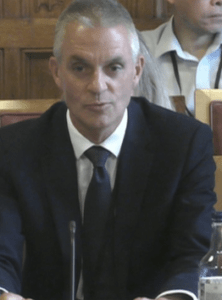
Yet in the same week he was also named as the presenter who had been suspended for allegedly paying £35,000 to a teenager in exchange for sexually explicit images, and ‘mental health issues’ were raised about him by his wife.
Now the BBC’s Director General (DG) Tim Davie, and acting chairwoman, Wales’ Dame Elan Closs Stephens, have been forced to answer important queries about its behaviour during the affair, following allegations that the corporation did not properly investigate the original complaint.
Both were closely questioned in the UK Parliament in front of the Lords Communications Committee.
Dame Elan Closs Stephens told peers that despite “huge pressure” to name Mr Edwards, the corporation “had a duty to act with some calm and rationality in the face of lack of rationality and lack of calm”.

Mr Davie said: “We have been in touch with the complainant”, and that due to the “history of this industry… we should all be concerned and appropriately diligent around the abuse of people in powerful positions”.
He declared that when it came to presenters or people in power, it was important to be “very very clear about what your expectations are culturally as well as the policy”.
Mr Davie was “proud of the work we’ve done over last few years” as there is now a “very clear code of conduct”.
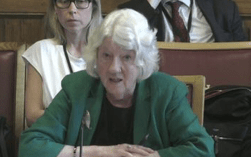
Some have questioned The Sun’s decision to publish the original story, and the balance between publishing in the public interest versus the right to privacy has been thrust firmly into the spotlight.
However to critics of the BBC recent events have shown there is little to be proud about, as Mr Davie has stated, and that the code of conduct is completely worthless.

 It was seven weeks before Mr Edwards was spoken to, and the initial investigations team only sent a single email, making just one phone call that did not connect to the initial complainant, in order to try to verify the claim.
It was seven weeks before Mr Edwards was spoken to, and the initial investigations team only sent a single email, making just one phone call that did not connect to the initial complainant, in order to try to verify the claim.
It was only when contacted by The Sun that the BBC spoke to the presenter and he was taken off air.
Officials also seemed to have been tardy in talking to the media about it.
For an interview which did not directly concern the Edwards scandal, Mr Davie entered an official building through a loading bay to, in the words of Sky, avoid answering reporters’ questions.
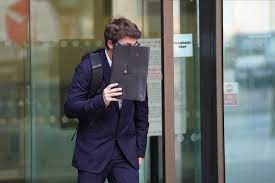
He appeared on BBC Radio 4’s World At One (WatO) programme, but did not given an interview to any other news outlet.
“The fact all of us broadcasters have asked, have put in requests again and again to speak to the director general, and the fact that he has only given an interview to his own people is not a good look for the BBC”, said one Sky journalist.
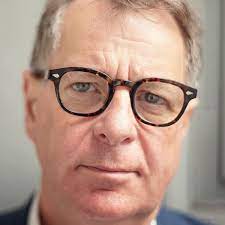
One former executive at the corporation told The Eye: “Davie’s leadership credentials are in the spotlight. First the Lineker fiasco and now the Edwards’ public relations car crash.
“These episodes have done immeasurable damage to the BBC and both could have been avoided by immediate intervention”.
After days in which Mr Edwards went unnamed as the presenter at the centre of the alleged sex scandal, the publicist and strategist Mark Berkowski told Times Radio: “We’ve got a situation where it’s an ongoing car crash and the BBC is so glacial about how they’re dealing with this, because this is a 21st century problem,”

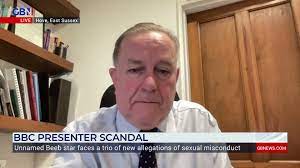
David Keighley, the former BBC news producer and director of News-watch, spoke of “reputational damage” to the man’s colleagues.
Our Editor, Welshman Phil Parry who spent 23 years in the organisation, both in Cardiff and London, said of recent events: “What happened was unbelievable – it’s been like watching a car crash in slow motion.
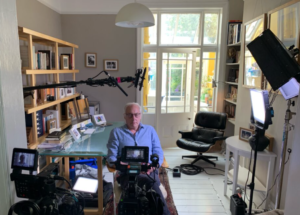
“First there was the embarrassment of the Gary Lineker affair, now this. The man at the top has overall responsibility. Tim Davie should go”.
Harmful claims have also emerged about Mr Edwards’ behaviour generally at the BBC, and MailOnline said that senior executives “moaned” about missing Wimbledon and the Ashes to deal with the mounting crisis.
There have been accusations that apart from the main story involving one young person, others are involved too, and that the presenter broke Covid-19 lockdown rules to meet one of them.

It has been claimed that Mr Edwards sent ‘menacing’ texts to one individual, and now further allegations have emerged following the original ones made in The Sun (the paper says it has a dossier of his alleged activities, but has chosen not to publish).
The claims may be particularly damaging for the corporation, because he has been accused of sending inappropriate messages to BBC employees.
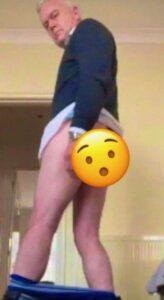
According to Newsnight, one current staff member claimed they were contacted on social media by him, and the messages left them feeling uncomfortable as well as awkward.
The messages were reportedly suggestive in nature, appeared to be flirtatious, and referred to the appearance of Mr Edwards’ colleague. “There is a power dynamic that makes this inappropriate”, the staff member said.
Another BBC employee alleged that Mr Edwards had also sent them a private message on social media which commented, too, on their appearance and gave them a “cold shudder”.
But the supposed attitude of senior executives during the crisis has also made headlines.
One official reportedly proclaimed: “The only time I’ve seen my wife this weekend is when she was on TV”, adding: “We are all so sick and tired of these people”. The Times also reported it.
A spoof mock up of a former BBC logo which circulated on the internet may not have been accurate, but showed the depths the corporation’s reputation has sunk to in the eyes of the public. It said: “BBC – Blokes Bumming Children”.
 Reputation is everything – and now the questions about the BBC’s behaviour show that it may be cracking…
Reputation is everything – and now the questions about the BBC’s behaviour show that it may be cracking…
The memories of Phil’s extraordinary decades long award-winning career in journalism (including his years at the BBC) as he was gripped by the rare neurological disabling condition Hereditary Spastic Paraplegia (HSP), have been released in a major book ‘A Good Story’. Order it now.

Another book, though, has not been published.











